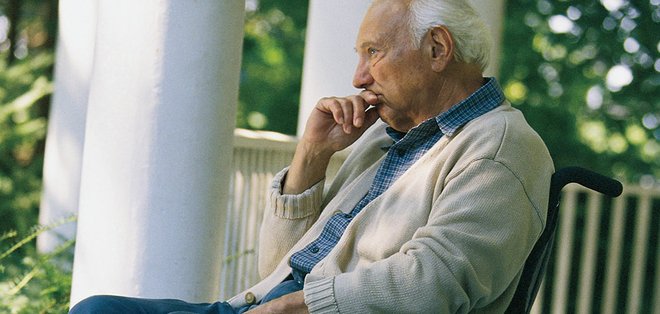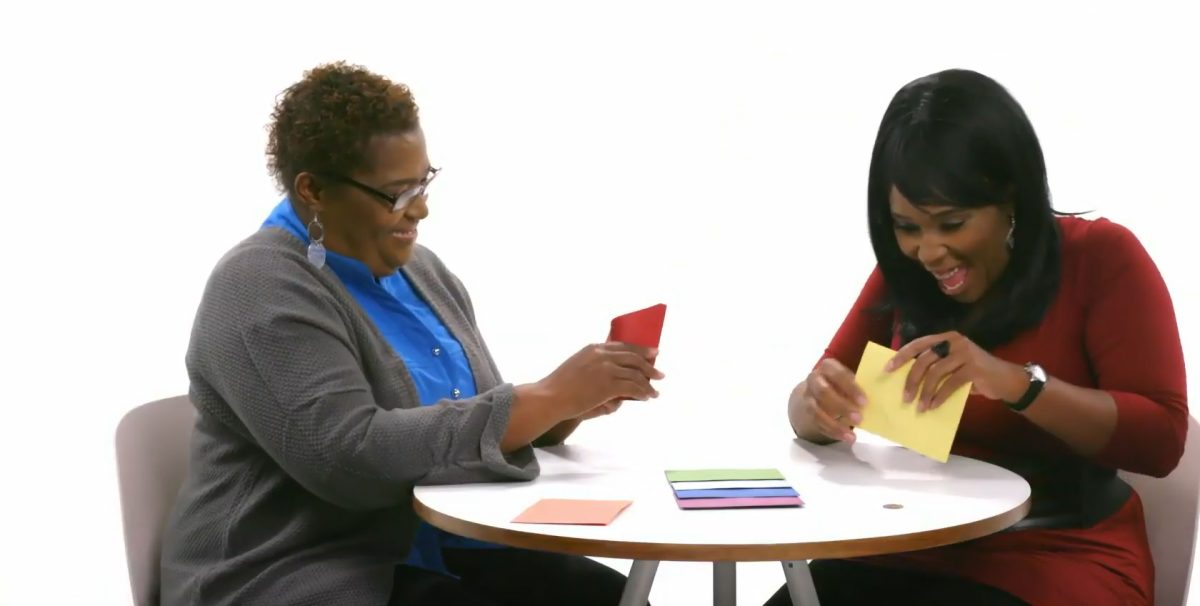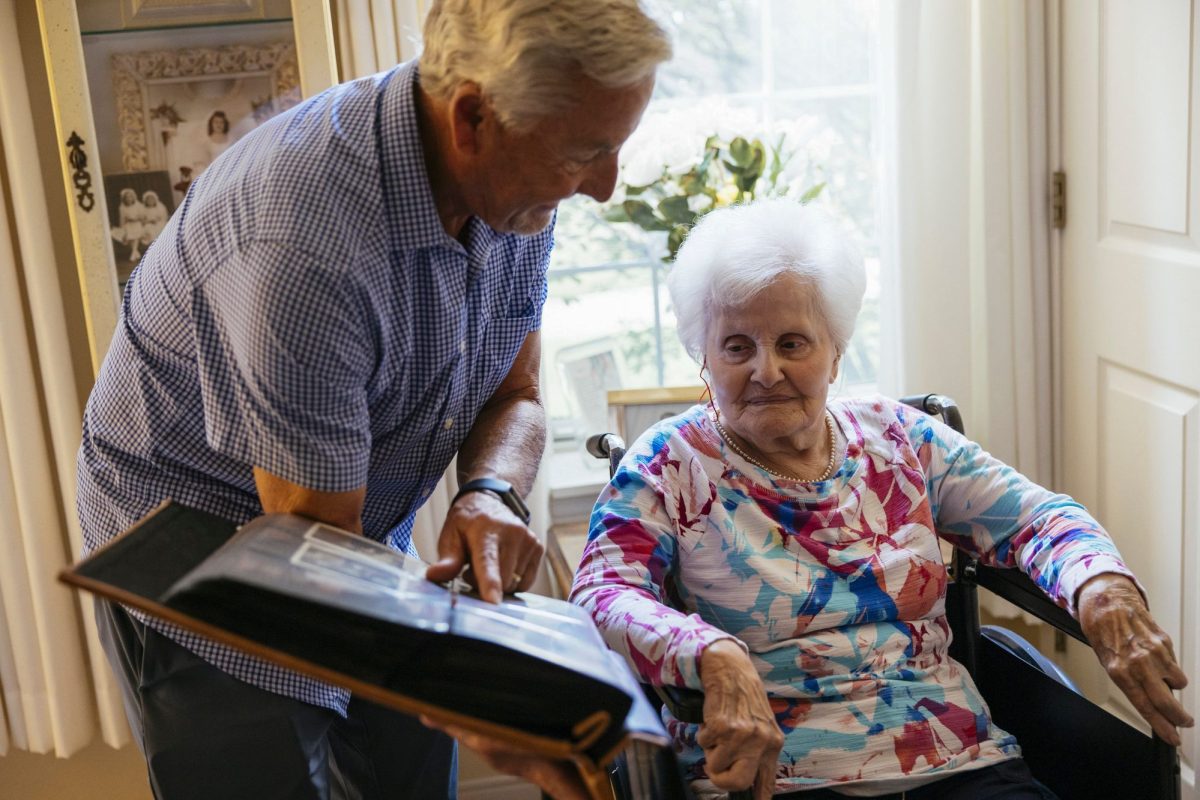What Every Dementia Caregiver Must Know

With over five million people in the US with Alzheimer’s/ dementia today and this number expected to grow exponentially every year, it is of vital importance to empower the family and professional caregivers with support and dementia care skills. Providing care that yields positive outcomes for both the person living with Alzheimer’s/dementia and the caregiver is very important and challenging. To help, I provide a few things every Alzheimer’s/dementia caregiver must know.
1. Obtain the necessary help and support
Whether a family or a professional caregiver such as a nurse, aide, or therapist, it is important to establish a dementia management team for expertise and emotional support. For example, the family caregiver should never feel or be alone. An important first step is to join a support group. The Alzheimer’s Association usually has a local list available and if needed, many of these groups make it easy to attend with your loved one with Alzheimer’s/dementia. They may offer an early stage group that is held at the same time as the family support group or they may have an activity for those with Alzheimer’s/dementia during the family support meeting. Also, the family caregiver should use the many professional resources available to receive critical advice and guidance throughout the journey. For example, there are Alzheimer’s diagnostic centers available to make a diagnosis and to provide medical treatment. In addition, that physician or a primary doctor may be able to refer an Occupational Therapist (OT) who specializes in dementia care. The OT can perform an assessment of the person with Alzheimer’s/dementia, analyze the caregiving and living environment situation, and provide ideas and education to improve safety, functional independence and quality of life. These are two examples of valuable resources that family caregivers must tap into early and often.
Similarly, professional caregivers and other healthcare workers shouldn’t provide dementia care in isolation, but instead, must use each other as a resource of knowledge, problem solving assistance, and emotional support. For example, the nursing aide should never be left alone to problem solve how to manage resistance to care or aggressive behavior expressed by a client with Alzheimer’s during a shower. Instead, the aide should have a method to communicate with his/her team members about the challenge in order to obtain support and to discover a solution. The dementia management team should include the Occupational, Speech and/or Physical Therapist, the physician, the nurse and others involved in the care of the resident/client.
Family and professional caregivers often experience stress and feelings of being overwhelmed or uncertain. Therefore, creating dementia management care teams in a facility or in the community is essential for all who are involved in providing care for those with Alzheimer’s/ dementia. The emotional support, advice, and knowledge derived from a team are critical for all caregivers to be as successful and stress-free as possible.
2. Learn how to deliver dementia capable care
The 1997 Alzheimer’s Association publication “Key Elements of Dementia Care” identifies developing staff to become dementia capable as one of the key factors for quality dementia care and calls this a human resource guiding principle stating:
“Staff members are appropriately trained in the various components of Alzheimer’s/dementia care, and have ongoing opportunities for education and support. Staff should also demonstrate dementia-capable skills and knowledge before caring for residents with dementia.”
Let’s examine what I have found to be some of the key components of dementia capable care and describe how each should be applied by the professional or family caregiver to facilitate the best outcomes.
Component 1: Stage Appropriate Compensatory Care
To enhance functional independence and emotional well-being, the caregiver must understand the dementia stages and how to provide compensatory care, meaning: Change the approach to gain the trust, agreement, and understanding of the person with Alzheimer’s/dementia, change the environment so it is supportive and not a hindrance or distraction and simplify the activity to the just right challenge level. At each stage, there is a certain amount of compensation that needs to occur. At the more advanced dementia stages, there is more compensation and assist needed. This is similar to the fact that a parent needs to provide more care and adaptation for a younger child.
Component 2: Dementia Capable Communication
The caregiver must understand how to communicate with the person with Alzheimer’s/dementia. Simple communication modifications are necessary to increase understanding such as:
- Wait for a response
- Take a complex situation and make it simple by breaking it into one step directions
- Use visual or hand over hand cues with words
Component 3: Dementia Capable Behavior Management.
The caregiver must know how to reduce the prevalence of negative behaviors. This begins with knowing that the vast majority of negative behaviors expressed by a person with Alzheimer’s/dementia have a reason or trigger and that behavior is most often simply a communication of an unmet need. Typical reasons for a negative behavior may be unmanaged pain, loss of control, fear, or boredom. The caregiver must have the ability to observe the situation and behavior to try to discover the trigger.
A good approach to behavior analysis is the use of the “w” questions. Ask, “who” is present during the behavior, “what” is occurring, and “where” and “when” is the behavior occurring? This may show a pattern that leads to identification of the behavior trigger. For example, a young child may always have a behavior meltdown during a stressful day in which there was more than the usual activity that led to missing a nap. The parent observed that every time the morning nap was missed, the child had a tantrum or was very resistive and cranky in the afternoon.
Similarly, I have found that those with moderate/severe dementia “sundown” more often or more severely when the stress of the day was higher than usual. Once the causes of the stress were addressed, the sundowning ceased or was greatly reduced. Therefore, if the behavior is not causing an emergency situation, it is important for caregivers to take time and look for patterns that lead to identification of the likely reasons behind the behavior. When the trigger is addressed, it can reduce or completely eliminate the negative behavior.
As mentioned above, dementia capable care is not unlike child care as many of the basic principles of child care apply to care for elders with Alzheimer’s/dementia. For example, for children (and for those with Alzheimer’s/dementia), it is the caregiver that must change the world for the child to feel and be successful. In child care, the guide as to what and how much to adapt is the child’s age. In the case of Alzheimer’s/dementia care, the guide is the stage of dementia the person is functioning within.
Of course, there are many differences because we would never treat an adult like a child. Also, an elder has a history that deserves respect and an elder may feel shame in a way a child would not. While honoring these differences, it is very helpful to think about the many similarities. For example, a child at the age of two could participate in washing their face and brushing their teeth with much support and guidance from Mom or Dad. Mom or Dad will innately “adapt the activity to the just right challenge level” to facilitate a successful functional and emotional experience for that young child.
The following lists some of the adaptations the parent might make:
- Only have the items on the counter that are needed to brush their teeth or wash their face as anything else may become a distraction
- Simplify communication by giving a simple one step direction such as “put the brush under the water” while simultaneously guiding the child’s hand through the motion
- Praise no matter how messy the activity
- Help complete brushing the child’s teeth, reaching those areas that are particularly difficult or taking over if the child becomes overwhelmed or cranky
This is the same care approach and adaptations the caregiver would implement to enable a person in the moderate/severe stages of Alzheimer’s/dementia brush their teeth successfully. In summary, while acknowledging and honoring differences between adults/elders and children, we can apply many child care strategies to Alzheimer’s/dementia care.
3. Accept what is, celebrate the moments, and know that you are making a difference
Often, caregivers struggle to find the value and meaning of their interactions, care, and relationship. I believe this is so often the case because caregivers focus too much on what has been lost to the disease instead of what remains. In other words, if the person with Alzheimer’s/dementia is not able to communicate “normally,” can’t remember what happened an hour ago, or can’t engage in activity as they once could, then the caregivers struggle to find the purpose and value of the interaction or activity.
Again, we should take a page out of the child care playbook. Even though an infant or toddler has very poor memory and communication ability, and is very dependent, we view these children in a positive light and find the moments with them very meaningful and important. Even though a young child is filled with infinite potential and an elder with dementia is in the midst of decline, it shouldn’t diminish the immense importance of the activity and interaction with the elder. The situation is essentially the same, but it is our belief and perspective that is the real difference.
Of course, we must always remember that a family member bears a burden of having a history with their loved one with Alzheimer’s/dementia and is likely in a process of grieving “the loss” and change. Therefore, even with the help of a dementia capable care team, it may take some time before a family caregiver can move through the stages of grief to acceptance. But, the professional caregiver has the unique advantage of “lack of history” and therefore enters the person’s life completely in the moment, free of emotional baggage, and therefore is very capable of creating and celebrating meaningful moments, without harking back on what used to be.
A positive, in-the-moment perspective must envelop every care situation. Examples:
- It is true a person with Alzheimer’s/dementia may reach a dementia stage in which they don’t remember visitors, but it doesn’t mean the moments spent during the visit weren’t special and therefore valuable to creating quality of life.
- It is true that at some point a person with Alzheimer’s/dementia may not be able to play a dice game with the same skill and expertise they once had, but it doesn’t mean they wouldn’t enjoy sitting at a table hearing the familiar sound of the dice rolling, or throwing the dice while others clap and encourage. It is the social and activity experience that matters, not winning the game.
- It is true a person with Alzheimer’s/dementia may not be able to plan and tend to the garden in the expert way of days gone by; it doesn’t mean they wouldn’t enjoy planting one plant with caregiver assist, while feeling the sunshine on their face and hearing the birds sing.
Whether a professional caregiver meeting the person for the first time, or a family caregiver in a progression towards acceptance, we must never assume a life or a relationship has less value simply because it has changed. Instead, we must believe those with Alzheimer’s/dementia have the potential to lead a meaningful life at every dementia stage if we help to create feelings of purpose and success through loving and supportive interactions and moments.
Summary
There is a fulfilling, rich relationship that can occur and be maintained between a person living with Alzheimer’s/ dementia and their caregivers.
- Caregivers can’t care for their loved ones or their clients at the expense of themselves, but must instead seek out help, support and guidance so they never go it alone. The key is to create and be a member of a dementia management team.
- There is much a caregiver needs to know about how to care for those with Alzheimer’s/dementia at each stage and it is called dementia capable care. It is not unlike the basic premises of good child care. Therefore, a person can quickly learn how to be a dementia capable caregiver by applying what is already known from child care, while always being mindful to never treat an adult like a child.
- Finally, all caregivers must learn to enjoy the precious moments spent with those with Alzheimer’s/dementia. The disease should not be allowed to define life or relationships. With a positive perspective, there will be many special moments along the journey if the caregiver stops to see, hear and feel them.
https://caregiver.com/articles/what-dementia-caregiver-must-know/?utm_source=Caregiver+Newsletter&utm_campaign=8a7dbae08f-Caregiver+Newsletter+2-18-20&utm_medium=email&utm_term=0_8c5d5e6a5e-8a7dbae08f-%5BLIST_EMAIL_ID%5D&ct=t%28Caregiver+Newsletter+2-18-20%29&mc_cid=8a7dbae08f&mc_eid=%5BUNIQID%5D




